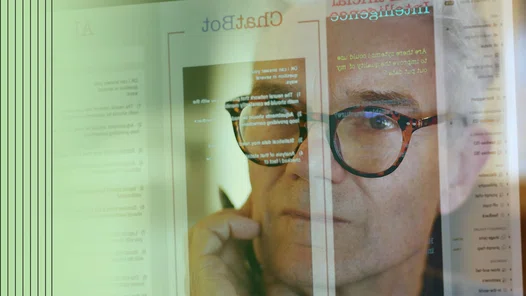newsletter
Sign up for the Marketer QuickLook Newsletter
SMPS Headquarters
625 North Washington Street
Suite 302
Alexandria, VA
22314-1936
email
info@smps.org
phone
703.549.6117



Crisis Planning &
Communications

Why Not All Publicity is Good Publicity



By Chuck Raymond, CPSM and Susan Shelby, FSMPS, CPSM, ABCP
Feature


Consider the Following Scenarios
Consider the Following Scenarios
The phone rings at your desk, and on the other end is a reporter from a local TV station asking questions about a severe accident at one of your project sites. Alternatively, you’ve gotten a negative review from a former employee on Glassdoor or are the victim of a smear campaign on social media. Would you and your firm be prepared to respond?
The 24/7 news cycle, combined with the constant stream of information on social media, means that your company is more vulnerable than ever to threats to its reputation. With that in mind, would you know how to respond to such a situation quickly, effectively, and professionally?
For the purposes of this article, a “crisis” can be defined as any unexpected event that focuses negative and/or media attention on your firm, clients, projects, or personnel. A few examples could include:

Construction site accident or fatality

Labor dispute

Workplace violence

Criminal conduct (theft, fraud, abuse)

Sexual harassment or discrimination

Negative social media attention
A crisis or unexpected event can disrupt your normal business operations and have an actual or perceived negative impact on your company. Handled well, and it can keep an unfortunate situation from becoming a full-blown crisis. Handled poorly, and it can ruin your firm’s reputation for years.
This article will describe how a detailed crisis communications plan can help you evaluate the scope and level of a crisis while establishing a uniform communications system, procedures, and protocols to help your company deal effectively with an emergency. Our goal is to provide practical information around a range of crisis issues that you can immediately implement within your firm.
By leveraging lessons learned from within and outside the A/E/C industries, you will see how large and small firms navigate through the potential minefield of managing a crisis.
Preparing for a Crisis
Preparing for a Crisis
Before you are faced with a crisis, a crisis communications plan is one of the most critical tools you can have in your toolkit. Such a plan helps establish a uniform communications system, procedures, and protocols to help your company deal effectively with emergency situations and minimize adverse consequences.
In a nutshell, it tells everyone what to do when a crisis occurs, helps present a united front, and prevents different people from telling opposing or counterproductive stories.
Assembling a Crisis Response Team
Assembling a Crisis Response Team
Central to your firm’s response to any crisis is a Crisis Response Team (CRT). You may call it something different, but as the name implies, this is a small group of employees with the authority and experience to marshal the firm’s resources to respond to and recover from a crisis. It can include people such as but not limited to:
Preparing Holding Statements
Preparing Holding Statements
If a crisis requires you to respond to media inquiries, one of the most helpful tools you can have is a series of “holding statements.” These are short fill-in-the-blank statements, much like Mad Libs of days gone by. Since you may have to offer updates or statements without knowing all the facts, it’s helpful to have general holding statements with blanks to fill in for the specifics of the particular situation.
Your CRT should brainstorm potential situations and draft brief statements in advance, reviewing coverage of other crisis situations to see how the media covers similar situations. It’s important to note that the local press might not understand A/E/C industries lingo, so avoid acronyms, jargon, etc. Write like you are explaining to your next-door neighbor. Your holding statements should:
- Express concern and sympathy for those affected
- Show that you understand the severity of what happened
- Demonstrate compassion, concern, and humility
- If there was an accident or fatality, explain what you are doing for those who may be impacted
During a Crisis
During a Crisis
As your response to a crisis starts to unfold, you’ll need to assess how severe the crisis truly is, as different crises require different response levels.
LEVEL 1
Does not prompt media coverage and can be handled internally
LEVEL 2
Involves parties outside your company (e.g., client)
LEVEL 3
Could affect the company for an extended period
Since a Level 1 crisis can be handled internally, let’s focus on your response to Levels 2 and 3.
- All calls from the media should be referred to the CRT
- Only the CRT is to speak to the press
- Prepare and distribute an initial response to the media and employees
- Keep a log of all incoming media inquiries. This log helps ensure that you reaspond to each one
- Monitor for social media activity and other coverage of the crisis
Working with the Media
Working with the Media
Should, however, it be your firm’s responsibility to respond to media inquiries, here are a few rules to follow.
- Provide regular updates. It’s critical that you push out periodic updates. If they don’t hear from you, the media will reach out to whomever they can to get the information they seek to file their story.
- Identify a point person. This person needs to be decided ahead of time, allowing you to control what is being communicated to the media.
- Consider setting up a micro web page to communicate updates. This way, the media can just be referred to that website, and it’s easy to keep updated.
- Keep track of and respond to every media inquiry. Remember, you want to make sure that you tell your side of the story, and the only way to make sure that happens is to respond to each inquiry. Once the story is written, it’s too late.
Saying “No Comment”?
Saying “No Comment”?
Probably the single biggest misconception about responding to the media is that simply saying “No comment” will absolve you from having to divulge difficult information. On the contrary, while it may seem an easy way out, the optics are that you are hiding something. It offers another opportunity for the media to look elsewhere for the information. If they can’t get it from you, they’ll get it from someplace else, and you may not like what is printed. Our recommendations?
- If it’s confidential information, simply say, “I’m sorry, that’s confidential, and I can’t divulge that.”
- If you don’t have the information yet, offer, “We can’t answer that question yet but would be glad to when we get more information.”
- Otherwise, be polite, take a breath, and offer, “I appreciate the question, but I can’t offer any more information now than I already have. We will provide updates when we know more.”
Debriefing After a Crisis
Debriefing After a Crisis
After the situation is under control, gather your CRT and evaluate your response to the crisis. Ask yourselves what worked and what didn’t, and adjust your crisis communications plan accordingly.
A crisis communications plan needs to be a living, breathing document and something you visit and update on a regular basis. Many firms either don’t have a crisis communications plan, create one and let it gather dust, or mobilize on the fly, which can be disastrous. The more up-to-date your crisis communications plan, the better prepared you will be to handle an urgent event professionally and with minimum impact on your firm.
Share:
Susan Shelby, FSMPS, CPSM, ABCP, is the President and CEO of Rhino Public Relations, a boutique PR agency focused on meeting the unique needs of professional services firms and offering customized services based on each individual client’s goals and budget. A past president of the Boston chapter, Susan received the 2016 SMPS Boston Marketing Professional of the Year Award, which honors marketing excellence in the A/E/C industries.
Connect with Susan on
Chuck Raymond, CPSM, is the Publications and Press Manager for Weston & Sampson in Worcester, Massachusetts. He was the recipient of the 2020 SMPS Boston Marketing Professional of the Year Award, is a three-time past member of the Boston Chapter’s Board of Directors, and is a current Trustee of the SMPS Foundation. He is an avid golfer who also enjoys hiking, usually with his dog, Austin.
Connect with Chuck on
READ NEXT



















